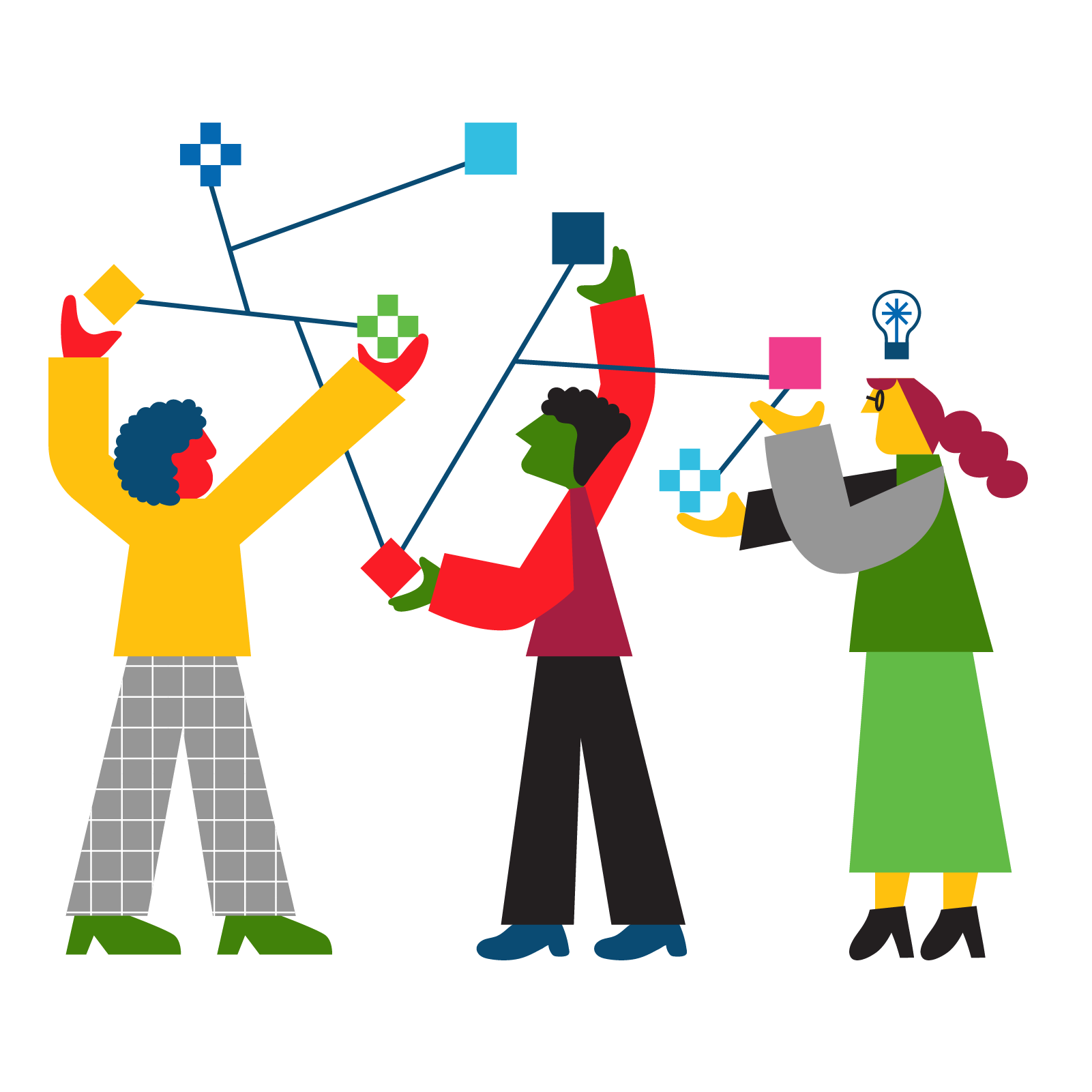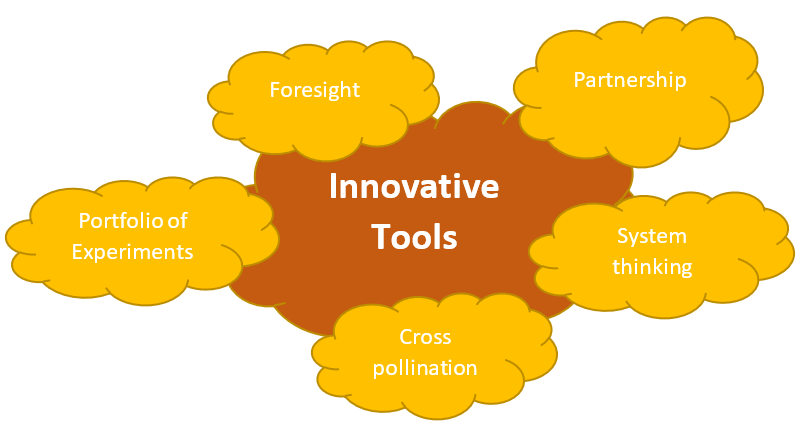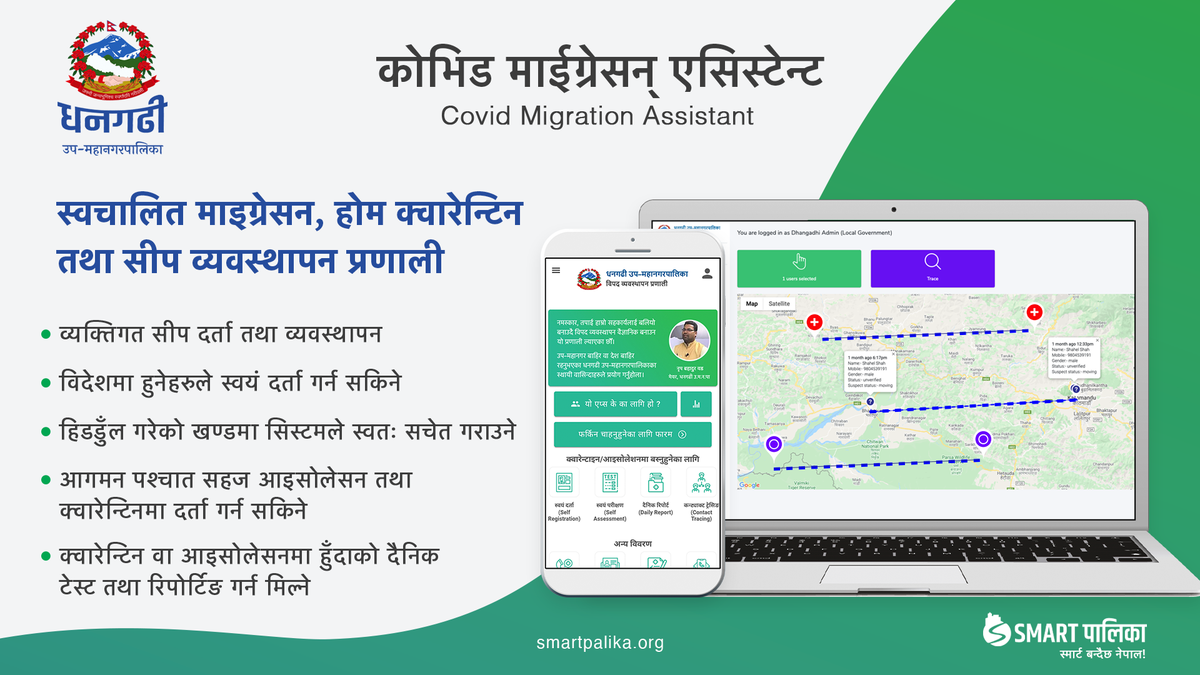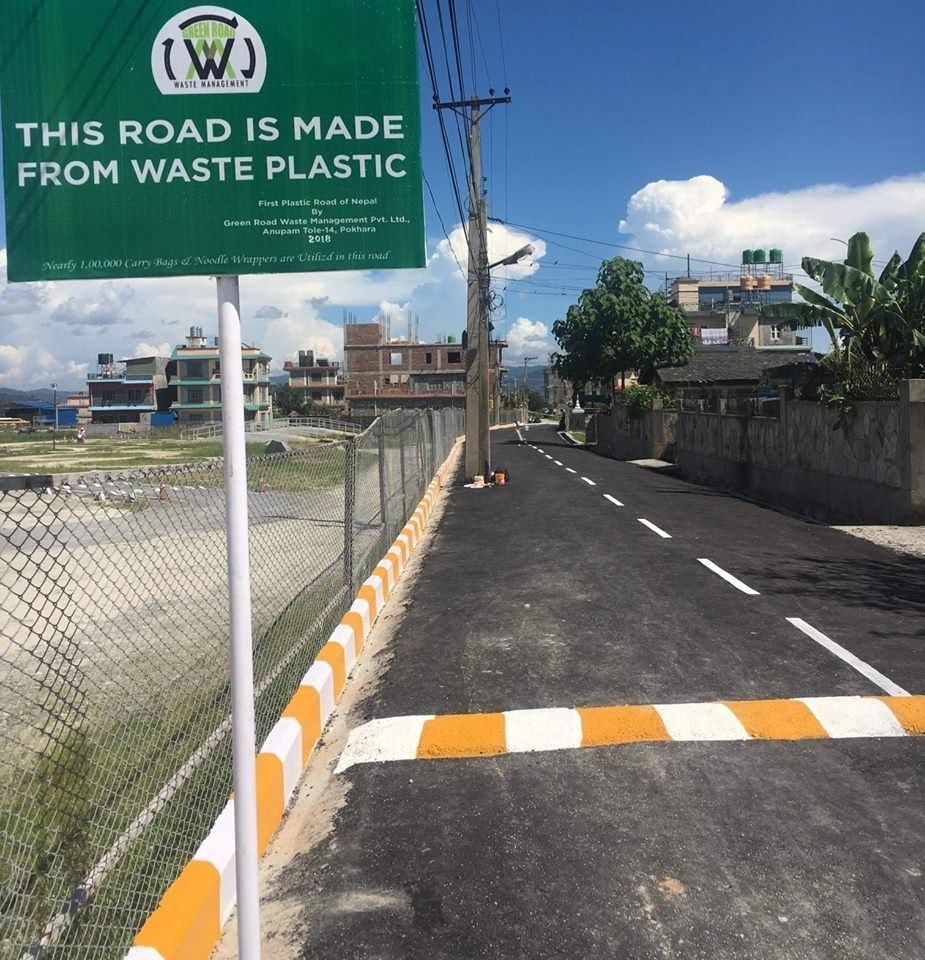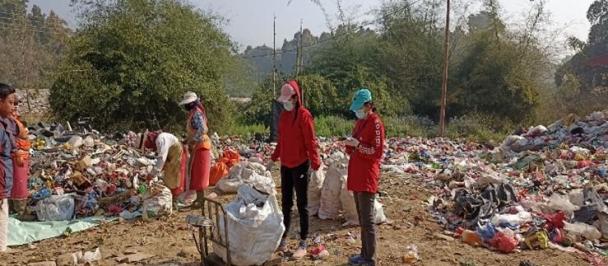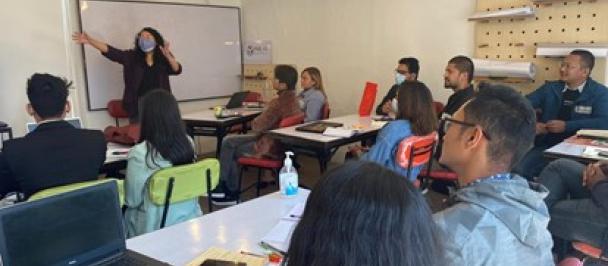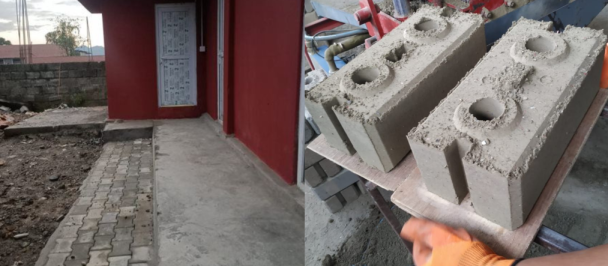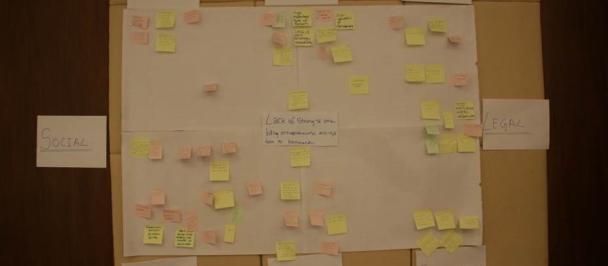The Accelerator Lab Nepal was launched on the 1st of August 2019 with an ambition to address the pressing challenges related to unplanned urbanization and youth unemployment. Today, as we turn 1 year old, sharing with you our learning journey in development so far:
1. Use of Innovative tools:
While mapping local solutions in the communities which are capable of addressing the challenges and issues sensed, we observed that translating ethnographic field observations and inferences into learning and action is much important. However, we felt that traditional way of report writing is not adequate to share the findings of our learning, and hence using tools such as user journey maps would help interpret our findings in a visual form.
- Journey Map: When exploring the reasons behind lagging urban waste collection during the initial COVID-19 outbreak in Kathmandu, we found that waste collectors feared contacting the virus while on duty. Thus, we developed a journey map of a day in a life of a waste collector and how we can better equip them to continue working during the pandemic.
- Collective Intelligence: In terms of exploring partnership for our solutions, we used collective intelligence as a collaborative tool to bring together local government, private sectors, community groups and experts at one place to better scan the horizon on the issue. With collective intelligence sessions and consultations with 50+ entrepreneurship eco-system actors while developing the strategic plan for Kathmandu Business Hub, we witnessed that learning meets action when people make decisions based on new intelligence. From our interventions we learned the importance of experiments-driven piloting and testing of ideas rather than relying on traditional ways of pilot testing. We observed that prototyping helps us quickly validate and refine our experimental designs.
2. Looking into processes and methodologies unconventionally
In order to design portfolios of experiments to learn on the correct blend of solutions to systemic issues in development, we felt that behavior change driven experiments are very much essential. We often see that a lot of projects are piloted in communities, but they are not quite focused on post-pilot behavioral aspects While we may feel we have clear objectives, our actions do not always reflect them. Therefore, we feel that processes and disciplines such as ‘ Behavioral Science’ will help us focus on understanding these inconsistencies and building models that are more reflective of the human experience.
We are planning to test an experiment, blending our two frontier issues 'unplanned urbanization' and 'unemployment'. We wanted to conduct a behavioral-economics steered experiment related to women-driven electric mini-bus (in Nepali Safa tempo) for public commute, with an innovator group called Aeloi Technologies wherein the customers can book their rides digitally and would be offered with subsidies in price as a part of their contribution on limiting carbon footprint and promoting digital footprints, and simultaneously supporting the women drivers with micro-finances and micro loans by connecting financial institutions and investors.
Picture courtesy in left: Pratik Rayamajhi/Republica (Muna Shrestha, a driver of Safa tempo) (Retrieved from: https://myrepublica.nagariknetwork.com/news/55268/)
3. Interdisplinary approaches in experiments
One of our greatest learning was to not look at an issue in a linear form and welcome various spheres and variable in the scene. Also, we learnt during our observations that often behavior is stimulated by the introduction of a different element (for ex: incentives). For example, while researching on the solutions that address the issue of rising plastic waste in urban cities, we came across an experiment of reverse vending machine, where people could voluntarily discard plastic bottles, cans and paper cups into the machine and rewarded with discount coupons/ vouchers in return. Here we see that the expectation of receiving an incentive is directly proportional to the individual’s willingness to keep his/her surrounding clean and plastic free. We sensed that various disciplines and processes such as psychology, behavioral science and economics can come together in a single experiment.
4. Partnership for Win-Win situation
With the essence of “together we win”, the foremost priority of AccLab Nepal is to work with and for the local governments. We believe that if we explore the emerging needs (both development and recovery) and tap the entry points within the government, the acceptance rate of our ideas and solutions are much more welcomed. This is also essential for achieving long-term results and enhance ownership and buy-in from the government.
One of our learnings while deploying SmartPalika application within Dhangadhi municipality for quarantine management and skill mapping was our initial struggle to make the application implemented. While deploying, we realized the limited understanding of the urgency towards the system during the rapidly changing unprecedented scenarios due to COVID. Hence, we quickly pivoted and brought the mayor and the government focal points of Dhangaghi Municipality onboard to smoothen the implementation process, rather than just training the IT officer on the use of the system. g the local governments onboard during the planning and mapping phase itself. We are taking one step at a time and yet to reach the ideal situation of leveraging all party resources through these partnerships.
5. Portfolio apprach > siloed interventions!
We learnt that a portfolio of experiments approach is necessary to focus on diversifying the learning generated from a range of experiments. Whereas, disconnected pilots without accelerated learning wouldn’t work. We understood that developing a framework to capture the learning from the experiments in a way that it favors critical reflection is essential. For example: Everyday 220,000 kilograms of plastics is used in Nepal. While designing the experiments to address plastic pollution, a one-size-fits-all solution wouldn’t work, there needs to be a portfolio of solutions. We have mapped two such solutions where a local company is building roads out of recycled plastics and a reverse vending machine company that collects plastic bottles and recycles them into consumer products such as flower vase, containers etc.
Photo Courtesy: Green Roads Waste Management Company
6. Agility and adaptiveness as critical skills!
Our one year of working at the UNDP Accelerator Lab has taught us to be agile, in a sense it has made us think that every process is iterative and there is always room for improvement even in unsuccessful trials or testing sprints. Afterall, agility is nothing more than the ability to adapt and respond to change. Being agile and adaptive towards the dynamic scenario was a huge learning for us. For example, the COVID-19 pandemic was so unprecedented, that we were very confused whether we do what we were doing before, or pivot our expertise, resources and intelligence to address the challenges imposed by COVID-19 and how do we do that. Right before the COVID-19 hit in Nepal and lockdown came into place in the end of March 2020, we had inaugurated our first experiment on pocket park (transforming misused public spaces in green and accessible parks). We were in plans to see how public react towards the park by fitting in surveillance cameras and monitoring their behaviors, but the lockdown didn’t allow us that liberty. We have yet another experiment on Kathmandu Business Hub which we were about to experiment with the local government but still ongoing on slow pace due to priority shift of the government towards the pandemic. However, we took this crisis as an opportunity to work closely with local governments on COVID-19 related efforts, whether it is supporting them with digital solutions or helping CSOs in supporting Virtual orientation facilities, our ability to adapt quickly towards the dynamic change helped us succeed in these supports to partners. Simultaneously, we are making the best out of the digital tools and platforms we have to continue our prior experiments.
In brief, we really believe that mistakes and failures are not fatal, it’s the “learning from the learnings” that counts, and we are moving towards our 2nd year accordingly.
Accelerator Lab Nepal launch video _2019
UNDP Accelerator Lab in Nepal is working closely with development partners, the private sectors and grassroot innovators as a “vehicle” to test innovative solutions around unplanned urbanization and unemployment, It is on a quest of to invest technical expertise on these two frontier issues in order to map, and explore a portfolio of experiments to foresee more possibilities.

 Locations
Locations


